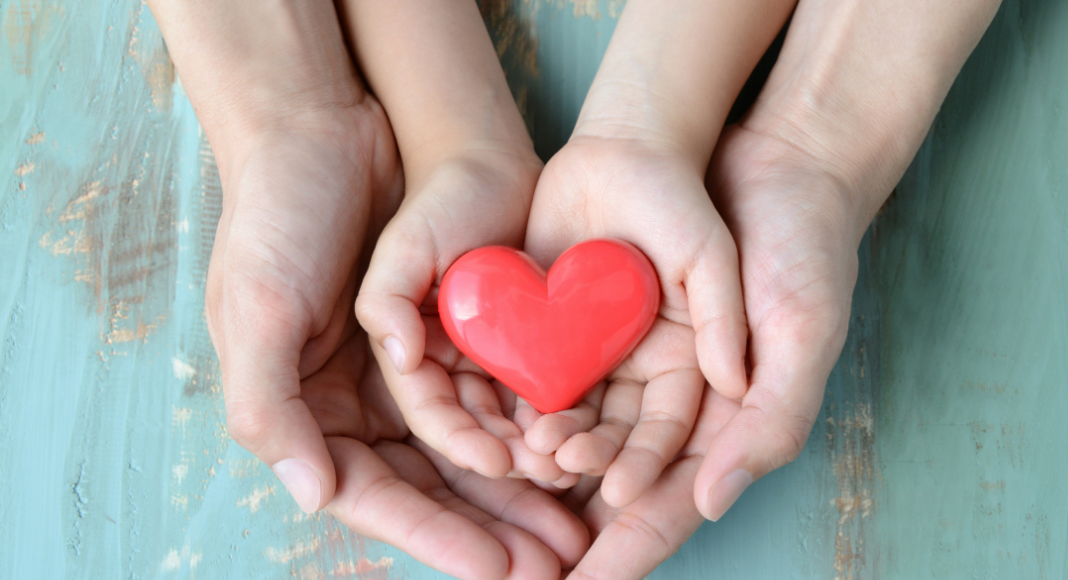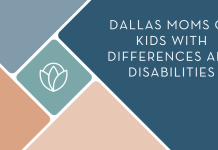It’s 4:30 pm and you’re in the grocery store checkout line trying to get home with supplies for making dinner. Your child has a complete meltdown and tantrum in the checkout line, so you:
A) Feel angry and respond immediately, whisper yelling in the store, with threats or punishment, “no dessert for you tonight,” or “you’re going straight to time out as soon as we get home.”
B) Feel embarrassed and start bribing your child with dessert tonight if they’ll just stand up and help you get out of the store without World War III happening.
C) Feel anxious and hand them your iPhone to play a game on and distract them from their feelings and behaviors.
D) Feel compassion and empathy that your child is having a hard time, kneel down on their level and get curious, perhaps saying something like, “I see you are very angry right now. I get angry too sometimes. It looks like you’re having a hard time standing in line. Are you ready to be home eating dinner? …Me too, I get frustrated when I’m hungry. Would a hug help you feel better, or would you just like to stand over here while I get the groceries paid for? We’ll be home soon for dinner.”
Now, don’t get me wrong, I’ve done A, B, and C, and will do them again throughout my parenting journey, I’m sure. But I try every single day to rewire my approach to my children’s behaviors and emotions with option D. One of my favorite parenting experts Janet Lansbury says, “A toddler acting out is not shameful, nor is it behavior that needs punishing. It’s a cry for attention, a shout-out for sleep, or a call to action for firmer, more consistent limits.” It often takes shifting your perspective, but I’ve found this to be so true.
Read More: A Call to Confident Parenting
Over my years of parenting and working with children, I’ve observed, learned, practiced, failed, learned, practiced, succeeded, and failed some more when it comes to discipline, but one thing is for sure:
I find that respectful and mindful parenting practices have by far been the kindest, most fair, empowering, and quite honestly effective approach I’ve tried. It’s not easy, and it takes lots of patience and dedication to change your natural tendencies (i.e., “You’re grounded for LIFE!” or “You should know better!” or “I’m NOT going to ask you again!”). But it’s worth it. You’ll find you have a more connected family.



In this work, instead of letting whatever you’re thinking or feeling come out of your mouth at that very moment, bring your conscious attention to what’s happening and don’t let your emotions control your reaction. From there, you use connection, communication, and cooperation to resolve issues you have with your children.
While some parents adhere very strictly to one parenting philosophy, not veering from those specific beliefs and values, others fly by the seat of their pants, never reading one word about any particular “parenting philosophy” and simply parent as they were parented in whatever way feels natural at the moment. I tend to find my comfort zone and happy place by mixing respectful parenting philosophies with a mindful parenting approach, and with as much authenticity towards my children as possible.
I’m not perfect and want to re-do parenting moments every single week, if not more often.
But I practice letting my children experience freedom within the limits of health and safety (letting things be unless it involves hurting others, running in the street, or bedtime—because in our house sleep is health and non-negotiable). Giving them autonomy and choice over their bodies, from what they wear to who and when they hug others to when they decide to say “I’m sorry” to what and how much they eat off of their plates at mealtime. And allowing ALL of their emotions (the good, the bad, the ugly) while trying to stay present and manage my own emotional triggers. The more I do all this, the more I see our tensions dissolve and our family grow.
My Favorite Resources for a Connected Family
What is Respectful Parenting anyway?
This Happiness is Here blog post does a great job describing it.
What’s the difference between that and Mindful Parenting?
I LOVE the Gottman Institute for all things relationships, and they have a great post on Mindful Parenting 101.
Dr. Dan Siegel
Really, anything he’s written if you want to learn about the developing brain, but I personally recommend No Drama Discipline, which links a child’s neurological development and the way a parent reacts to behavior, with practical tools for discipline.
Janet Lansbury
Her podcast Unruffled addresses specific parenting issues from a respectful parenting perspective. My current favorite book is one of hers: No Bad Kids, Toddler Discipline Without Shame.
Kristine Petterson’s Mindful Parenting Course
Kristine is a mindful parenting coach who offers an online self-paced program that teaches you how to identify your parenting triggers and gives you practical, real-life, strategies for encouraging more connection in your relationship with your children. Kristine is amazing and has changed my life, more than once. I’ve taken her e-course and worked with her in private coaching and highly recommend her!













